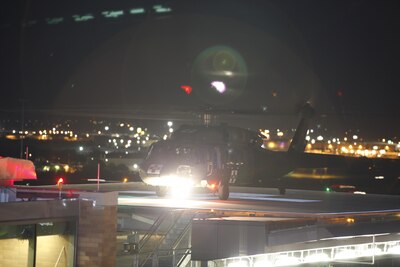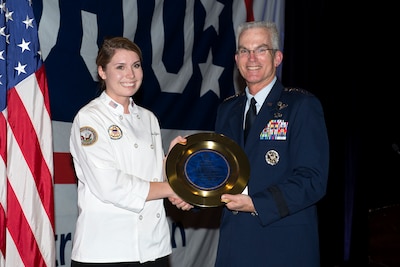By Elaine Sanchez Brooke Army Medical Center
JOINT BASE SAN ANTONIO-FORT SAM HOUSTON, Texas, Nov. 15,
2017 — The community teamwork and medical response here the afternoon of the
Sutherland Springs shooting was "extremely heartwarming," the trauma
chief at Brooke Army Medical Center said.
"When people heard about the shooting, we didn't have
to do a recall. People came in immediately and pitched in, … not to watch, but
to help," said Army Col. (Dr.) Kurt Edwards, who received patients and
directed care that night.
"We ended up with more medical staff in the operating
rooms, emergency department and [intensive care units] than we needed," he
said.
BAMC received eight victims -- six adults and two minors --
from the Nov. 5 mass shooting in the small community church in Sutherland
Springs, about 30 miles east of San Antonio. One adult patient was discharged
last week, and seven remain in BAMC's care.
The Initial Call
Air Force Maj. Belinda Kelley, the shift leader that night
in the ER, received the initial call. "We were told we were possibly
getting quite a few patients after a shooting at a church," Kelley
recalled. "We weren't sure how many were coming here, but were told there
were potentially 30 shot." Kelley later learned that 26 people had been
killed and 20 injured that Sunday afternoon.
Emergency Department entrance at Brooke Army Medical Center.
The situation was well controlled at BAMC, Edwards noted.
"We had about a 30-minute warning. We started prepping for any eventuality
to ensure adequate coverage. We opened up 15 trauma bays in preparation."
BAMC received four patients at first, then an additional
four not long after. "It was
disheartening to see that the injuries were not dissimilar to those in
combat," said Edwards, who has deployed multiple times to Iraq and
Afghanistan. "To see people who had been sitting in a church having
similar injuries to those in a combat zone [is] not something you want to
see."
The seven patients' conditions currently range from good to
critical. "They are all getting better," Edwards noted.
Team Effort
Edwards praised the first responders and the trauma
partnership within the city that led to an effective response. BAMC and
University Health System are the only Level I trauma centers in the San Antonio
region, caring for civilian trauma patients over a 23,000-square-mile radius.
On average, BAMC cares for 3,000 trauma patients each year.
"Both BAMC and University provide the highest level of
trauma care together, and we do it every day," he noted. "It's an
amazing partnership, especially when we are working together to care for people
after a devastating tragedy."
"The staff response has been professional, efficient
and caring," said Army Col. Michael Ludwig, deputy commander for inpatient
services. "I could not be more proud of the staff -- everyone from
housekeeping to the technicians to our senior leaders."
Kelley said she's proud to work at the military's only Level
I trauma center.
"As a nurse, it's a very emotional place," she
said, "especially when I pick up the phone and someone is looking for a loved
one. If I walk out of here and can't cry, then I can't come back, because that
means I don't care any more. Caring is
what I do."










